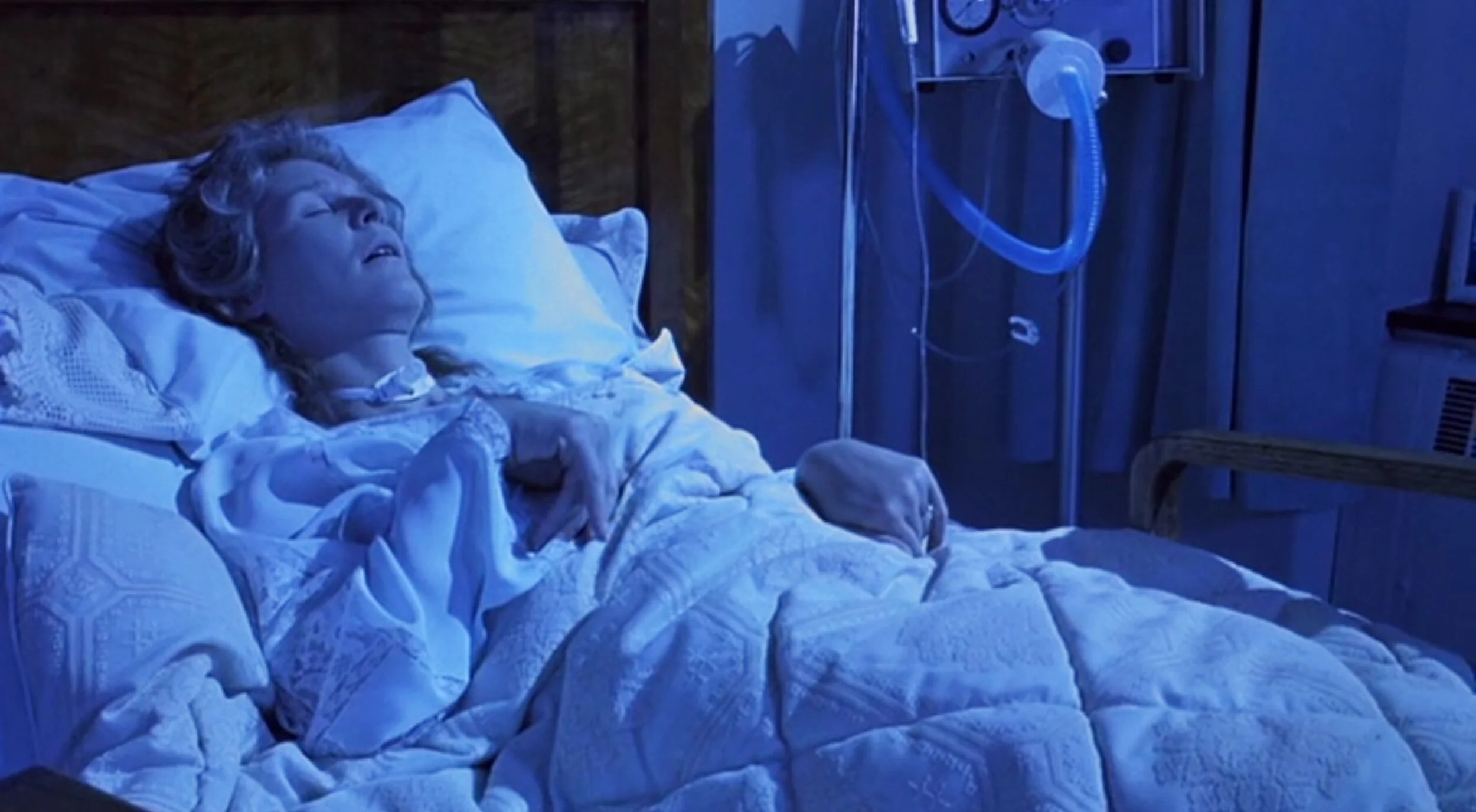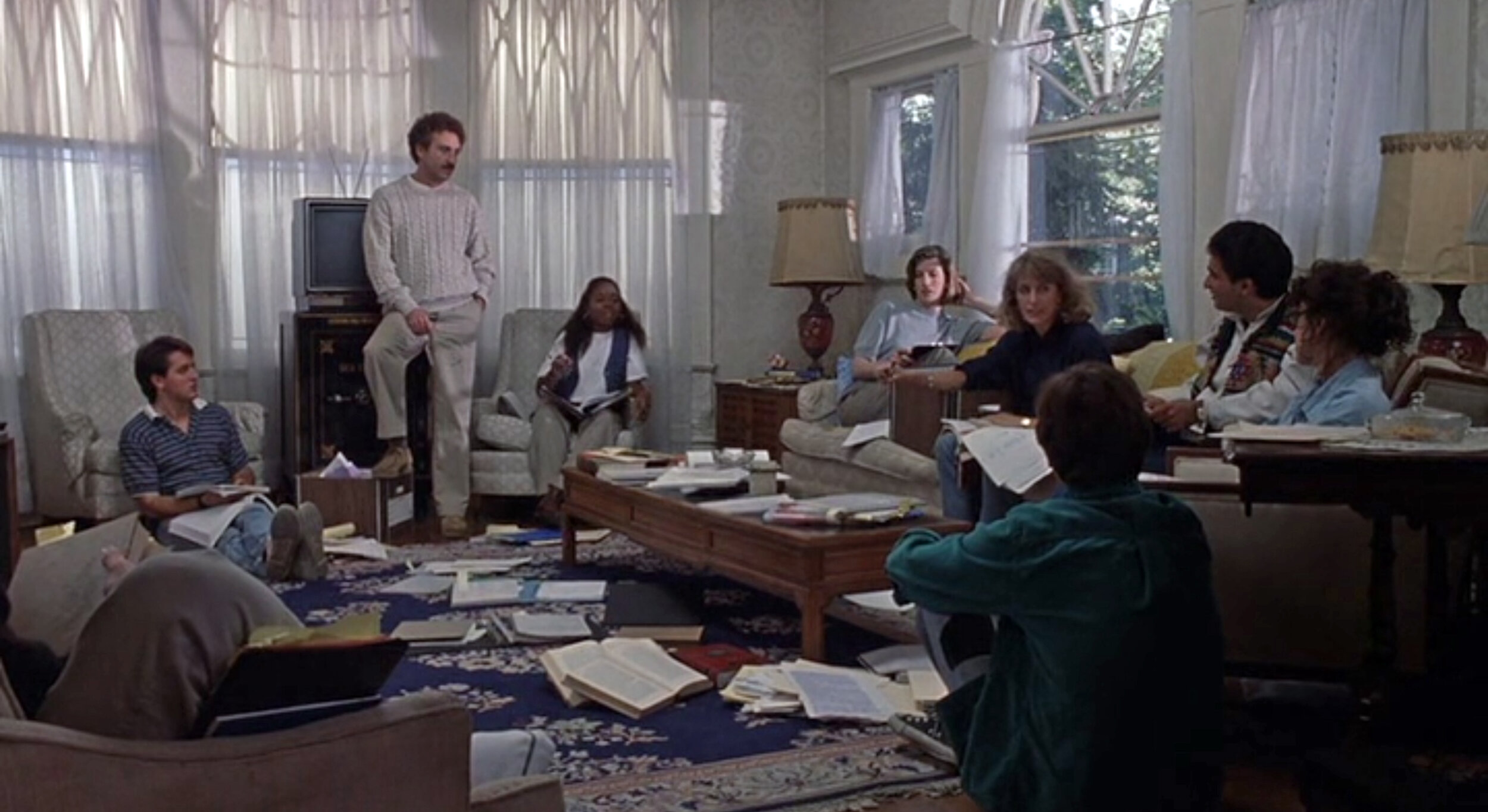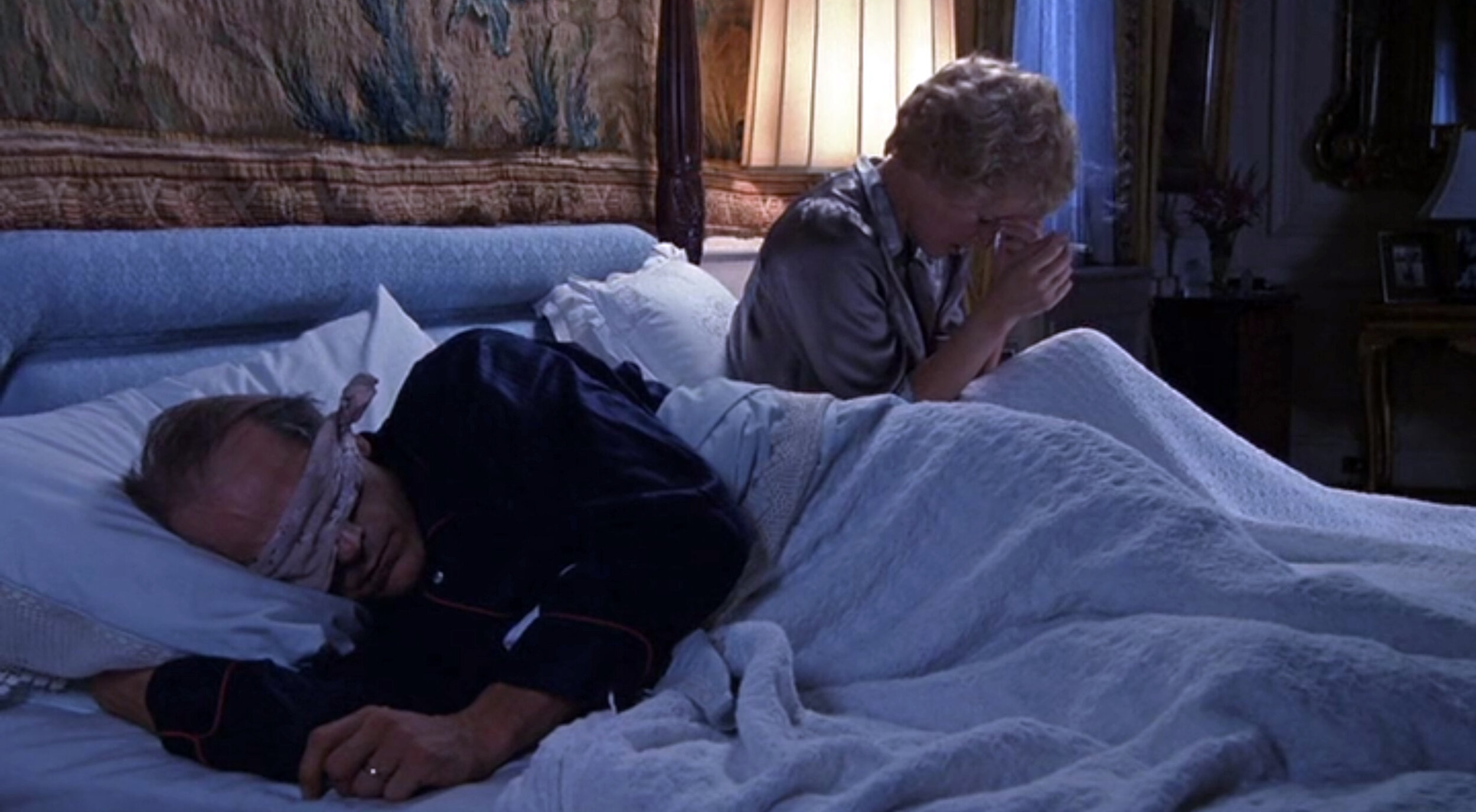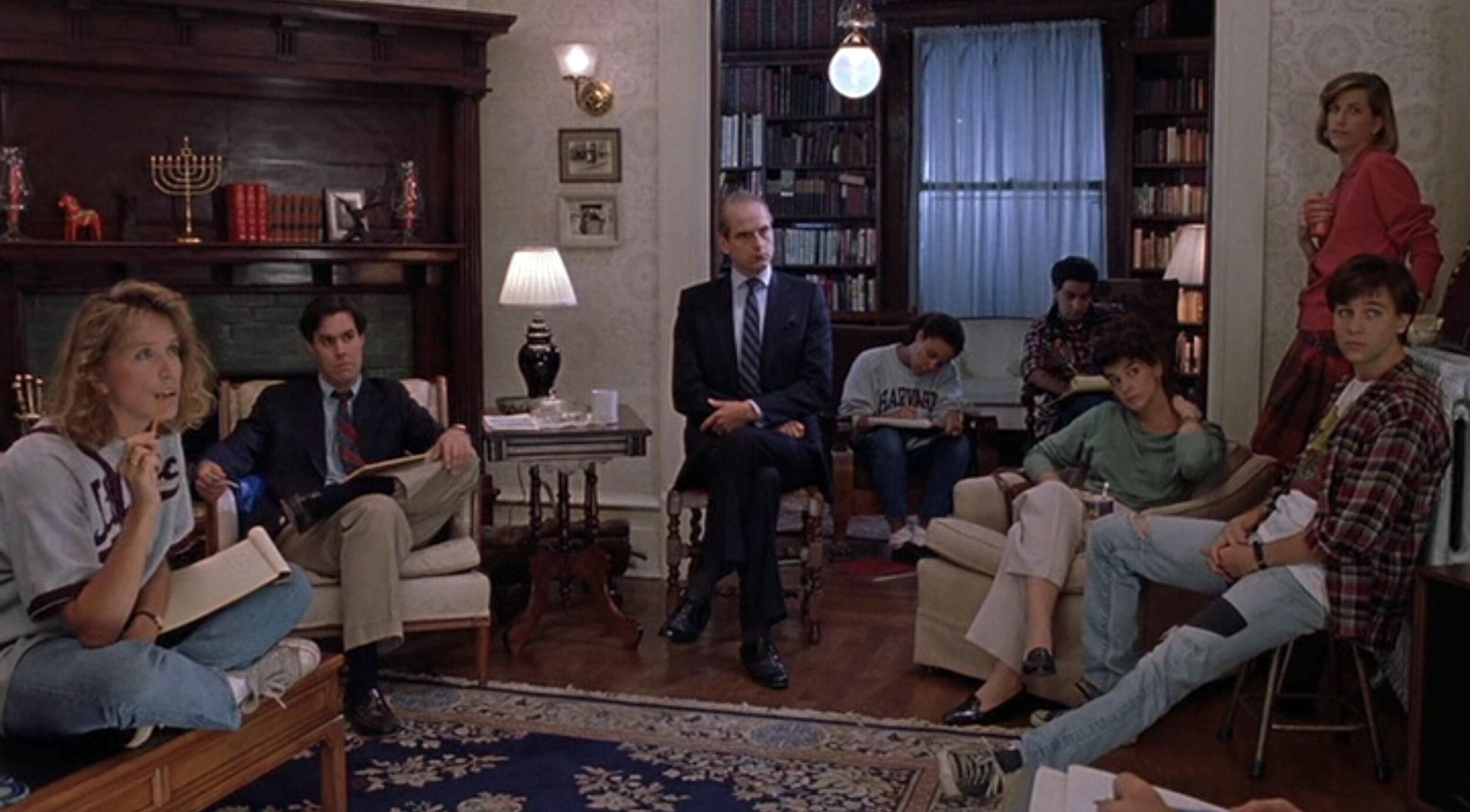Noblesse Oblige
Reversal of Fortune (1990) is a courtroom drama about a murder, in which the trial is never shown and where even the “murder” itself is up for debate.
The film tells the real-life story of Sunny von Bülow, a wealthy socialite who lapsed into an unremitting coma caused by an overdose of insulin in 1983. Everyone at the time blamed her husband Claus for Sunny’s condition—Sunny’s elder children, the media, and eventually the authorities. Claus was successfully prosecuted for attempted murder of his wife in 1987 and tasked the constitutional legal scholar and attorney Alan Dershowitz to help prepare his appeal.
The outcome of Von Bülow’s appeal was known to everyone in the original 1990 audience, as the case had been blasted worldwide throughout all news outlets: Claus successfully won on a host of reversible legal errors brought up by Dershowitz and his team. Now exonerated and still legally married to Sunny, Claus was free to live the life of luxury to which he had become accustomed courtesy of his wife’s fortune. With the tension of the ending removed from the get-go, the real debate which is bandied about endlessly in the film is whether or not Claus is in fact guilty of attempted murder.
Jeremy Irons is Claus von Bülow (left); Ron Silver is Alan Dershowitz (right)
When the film begins, a newly convicted Claus (played by Jeremy Irons) approaches Dershowitz (Ron Silver) about the prospect of legal representation. Dershowitz is reluctant—he doesn’t see any immediate constitutional issues during Von Bülow’s trial which would warrant an appeal, and besides, Claus is pretty creepy. The film is narrated not by Dershowitz recounting the steps to his success, nor by Claus attempting to win over the audience to his point of view, but by Sunny (Glenn Close). In a wan and measured tone from her coma bed in the hospital, Close’s narration from a state of permanent unconsciousness sounds like a grim choice that nonetheless elevates the story out of the arena of thriller or drama and into the realm of black comedy. The world of the über rich is depicted as cold, isolating, and incomprehensible, and therefore the prospect of one member of this secret society poisoning another is a source of fascination and even amusement rather than horror.
Sunny von Bülow (Glenn Close) narrates the film from her hospital bed
After Dershowitz accepts the case, many on his legal team (comprised of law students and colleagues) are horrified, convinced of Claus’s guilt. The other half are just as convinced, but they’re thrilled with the task, seeing the notion of exonerating a murderer as a special challenge. As one student puts it, “Sure he’s guilty, but that’s the fun of it!” The film vacillates between progress on the appeal and the backstory of the Von Bülows, the days in which they were happy and then into the times in which things became strained between Claus and Sunny.
Throughout the film the light(er) tone is maintained by Irons’s Von Bülow, who seamlessly vacillates from a bumbling spider wrongly convicted to a shrewd demon slithering his foot out of a steel trap. Irons infuses his character with a ghoulish mirth, someone who populates every encounter with “Von Bülow jokes” that he thinks will break the ice: “What do you call a fear of needles? Claus-trophobia.” Seeing the film now, separated from the “ripped from the headlines” aspect of the case, Irons is no longer providing an impersonation of a real-life figure but portraying a bizarre, vaguely European old-money ghoul, a performance which landed him an Academy Award for Best Actor in 1991. Silver’s Dershowitz is brusque, colorless, and to the point, serving as much as a vessel for plot development as anything else. He makes it clear to Von Bülow that he’s not personally concerned with his guilt or innocence, but simply testing the durability of the constitution against his client’s original conviction. The big question posited at the opening of the film remains just as unclear at the end: Was Claus the victim of circumstance? Did Sunny simply overdose? Or, is Claus guilty as sin? As Sunny herself replies, “Only when you get to where I am will you know the rest.”
Reversal of Fortune is comprised solely of characters whose standards of morality are so wholly distinct and detached from societal norms that the fun of the film is not watching whether or not these devils transgress, but in watching how they’ll manage to slip through the system and be rewarded for their (mis)deeds. Knowing that Claus von Bülow lived out his days comfortably before his passing in 2019 and seeing Dershowitz reemerge in early 2020 as part of Trump’s defense team against impeachment makes us nostalgic for a bygone era, when the wealthy bickered and murdered among themselves and left us out of it.
Reversal of Fortune is available to rent online via Amazon, YouTube, Vudu, and AppleTV.










